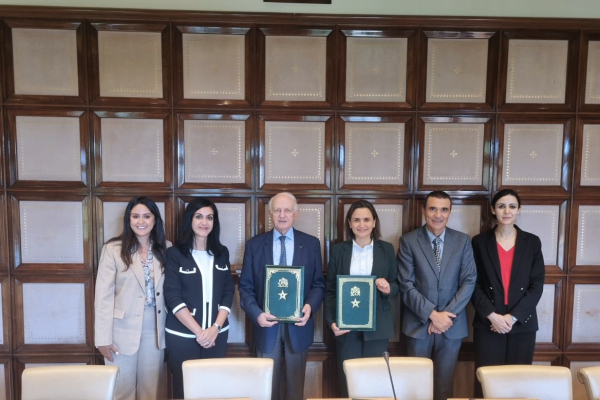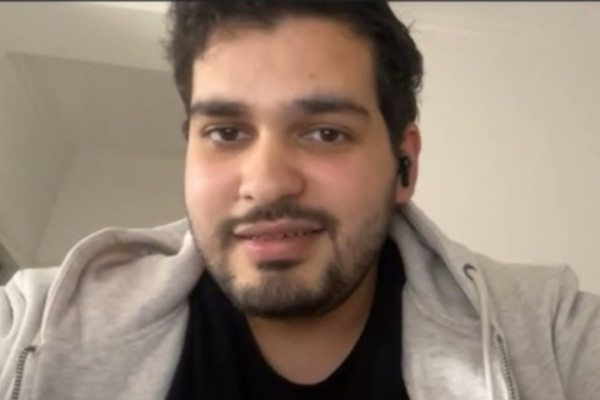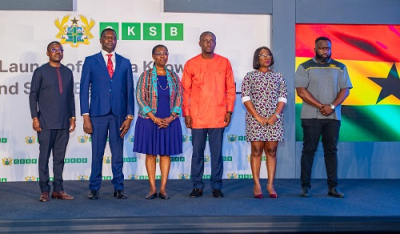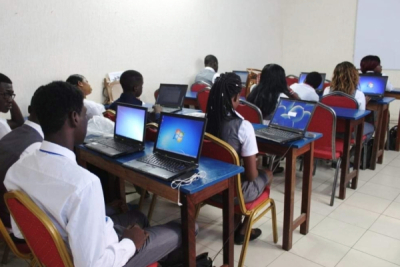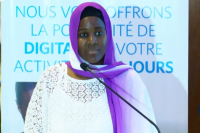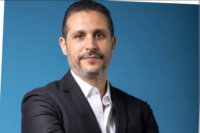To succeed in its digital transition, Morocco must rely on a skilled workforce in digital professions. By training talent tailored to market needs, the country aims to align the skills of its graduates with the growing demands of the digital economy.
The Moroccan Ministry of Digital Transition and Administrative Reform and the Foundation for Research, Development, and Innovation in Science and Engineering (FRDISI), signed a partnership agreement on Friday, September 20, in Rabat. The initiative aims to support research and development in the field of digital transformation.
"The agreement will oversee 18 doctoral thesis projects in digital-related fields, with a monthly stipend of 7,000 dirhams (around $722), along with guidance and supervision over three years," the ministry said in a statement.
This new agreement is part of the Moroccan government's efforts to enhance the skills and talents of young people in the sectors of digitalization and new technologies. It is also a key component of the upcoming national digital strategy, titled "Morocco Digital 2030," set to be launched in the coming days.
The strategy aims to train 45,000 digital talents annually, transition 50,000 young people into digital professions, and attract 6,000 new foreign talents each year. It places a strong emphasis on developing a talented and creative youth to bolster Morocco's global competitiveness.
By investing in its youth, particularly through its doctoral candidates, Morocco is betting on innovation and advanced research to strengthen its international competitiveness. This strategy seeks not only to meet the job market's skills demands but also to cultivate a workforce capable of sharing its knowledge. The goal is to position the kingdom as a key player in the technology sector, attracting foreign investment and fostering the emergence of innovative solutions.
Samira Njoya
With several years of experience in the Algerian hospitality sector, he aims to help both tourists and his fellow citizens efficiently plan their trips.
Mohamed Abdelhadi Mezi (photo) is an Algerian entrepreneur, co-founder, and CEO of Volz, a tech startup specializing in online airline ticket sales. Founded in 2022, Volz provides a platform for purchasing plane tickets with various payment options, including credit cards and cash on delivery. The platform offers a wide range of airlines and flight options at varying prices, making travel planning more accessible for users.
In addition to its core services, Volz is developing fintech solutions to ensure its services are accessible across all economic levels. Its features include price freezes, transparent refunds via its Refund by VOLZ function, price tracking, and a “book now, pay later” option, catering to a broad spectrum of customers.
Mezi is also the co-founder and CEO of Hotelris, another startup established in 2022. Hotelris assists hotels and travel agencies in developing long-term digital marketing strategies aimed at generating revenue, enhancing brand visibility online, and converting leads into clients.
He holds a bachelor’s degree in hospitality management from the National Higher School of Tourism of Algeria and studied digital marketing fundamentals at The Open University Business School in 2020.
His career began at KT Hotel in Algeria, where he worked as a restaurant manager and front desk agent. In 2018, he was appointed marketing director at Nreservi.com, an online travel agency. The following year, he joined Hyatt Regency Algiers Airport as a customer service associate.
In 2020, he joined Marriott International, where he served in various roles, including customer service associate, marketing specialist, and marketing manager for Algiers Marriott Hotel Bab Ezzouar and Residence Inn by Marriott Bab Ezzouar.
Melchior Koba
Integrating digital tools into education contributes to long-term economic development. It ensures that the youth - who make up a significant portion of the African population - are well-equipped for the demands of the 21st-century economy.
The government of Ghana launched on September 17 the Ghana Knowledge and Skills Bank portal, a platform providing free access to educational materials and tutoring services. The GKSB aims to improve learning for students from basic to tertiary levels, as part of Ghana’s digitalization efforts to ensure equitable access to quality education.
Minister for Communications and Digitalisation, Ursula Owusu-Ekuful, hailed the GKSB as a milestone in Ghana’s digital transformation, saying “This portal contains valuable information in line with the approved curriculum for Ghanaian students. It also grants access to over 5 millions online library archives, learning resources and tools.”
As part of the $200 million World Bank-backed Ghana Digital Acceleration Project, the GKSB seeks to expand digital infrastructure and educational access nationwide, aligning with the UN Sustainable Development Goals (SDGs) for inclusive education.
Developed by Npontu Technologies, the GKSB is designed to work offline, allowing students in remote areas to download materials without needing constant internet access. It will include educational materials from reputable sources like Cambridge University Press, Cengage Learning, and others. With this launch, Ghana becomes the 2nd African country after Egypt, to implement a national digital education system, reinforcing its leadership in digital innovation across the continent.
As of 2024, about 30.2% of Ghanaians (approximately 10.39 million people) remained offline, with rural communities being the most affected by this digital divide, according to DataReportal. Without consistent internet access, many rural students may struggle to engage with online learning opportunities, limiting their benefits from digital education initiatives. This underscores the urgency of expanding digital infrastructure in these areas, as part of projects like the GKSB, which aims to bridge the digital divide and enhance access to educational and economic opportunities across the country.
This initiative is expected to play a critical role in elevating educational standards in Ghana, aligning with international digital learning platforms, and contributing to the nation’s growing tech innovation capacity.
Hikmatu Bilali
Wi-Fi, a ubiquitous wireless connection system, remains a subject of debate worldwide. Its increasing use has raised concerns about potential health risks. However, recent studies offer reassuring findings.
Wi-Fi waves are not carcinogenic and pose no health risks, according to a comprehensive study recently published by the World Health Organization (WHO). The research, led by Australian scientist Ken Karipidis and conducted by an international team of experts, aimed to assess the potential link between exposure to radiofrequency electromagnetic fields (RF-EMF) and the risk of the most studied forms of cancer.
“The objective of this review was to assess the quality and strength of the evidence provided by human observational studies for a causal association between exposure to radiofrequency electromagnetic fields (RF-EMF) and risk of the most investigated neoplastic diseases,” the report highlights.
This study is a large-scale systematic review, based on the analysis of more than 5,000 publications on the subject, spanning from 1994 to 2022. Focusing specifically on around 60 of the most comprehensive and exhaustive studies, researchers concluded that Wi-Fi and other wireless technologies are safe for human health.
Over a decade ago, the International Agency for Research on Cancer (IARC) classified radiation from mobile phones, cell towers, and Wi-Fi as “potentially carcinogenic,” fueling widespread public concern. However, the findings of this new WHO study put an end to such debates. The authors confirm that current scientific evidence demonstrates no increased risk of cancer from exposure to electromagnetic fields generated by wireless technologies, including Wi-Fi.
A Necessary Clarification to Ease Concerns
This report comes at a crucial time, as concerns over the health impact of wireless technologies remain prevalent in some sectors of the population. The increasing number of connected devices in homes and workplaces has raised questions about the potential long-term effects of electromagnetic waves.
By definitively concluding that Wi-Fi and similar waves are safe, the WHO study offers reassuring insights and should help dispel lingering fears. However, the authors call for continued research to monitor the effects of emerging technologies, such as 5G, ensuring ongoing surveillance of any potential health impacts.
Samira Njoya
Amidst the rapid digital transformation, numerous projects and programs have been launched to equip African populations with digital skills. Various organizations are providing funding to support these initiatives.
Togo-based private university, Lomé Business School has secured €1.6 million in funding from the African Union Development Agency (AUDA-NEPAD) through the Skills Initiative for Africa (SIFA) program. This funding, obtained in partnership with the Malagasy edtech startup Sayna, will support the "EduJobTech" project that aims to train young Togolese for careers in the digital sector.
The EduJobTech program plans to train 860 young people over two years, focusing on web development, digital marketing, and UX/UI design. The project also involves renovating and equipping 16 digital hubs across six cities in Togo, including Lomé, Atakpamé, Sokodé, Kara, and Dapaong. To promote gender inclusion in the digital sector, 30 percent of the program’s spots will be reserved for young women. Additionally, 1,000 Sayna licenses will be provided free of charge during the training.
Funding for the project comes from AUDA-NEPAD, the German development bank KfW, and the European Union. Notably, this is not the first time Lomé Business School has secured financial support. In 2022, it received funding from the European investment fund I&P (Investisseurs et Partenaires) to digitalize its offerings and launch an e-learning platform.
By equipping young Togolese with essential digital skills, the program aims to enhance their employability and contribute to the growth of the country's digital economy.
Ayi Renaud Dossavi
Africa lacks skills in emerging technologies like blockchain and AI, which are increasingly essential for the global economy. Developing a skilled workforce will enhance African nations' competitiveness, attract investment, and drive international collaborations as these technologies transform industries.
The Hub for Digital Excellence Academy (HFDE) has partnered with the India Blockchain Alliance (IBA) to advance digital education and training across Africa, the hub announced on September 5. The partnership aims to equip African youths with skills in emerging technologies such as blockchain and artificial intelligence (AI), enhancing their employability in the digital economy.
"The collaboration aims to stimulate economic growth, create job opportunities, and foster innovation. With Africa’s youth at the forefront, the partnership is set to position the continent as a major player in the global digital economy," said HFDE.
The collaboration follows the launch of HFDE's Digital Excellence and Emerging Technology (DEET) Academy, which focuses on providing practical, industry-relevant skills. Through this initiative, participants will gain hands-on experience in blockchain, AI, verifiable credentials, and real-world asset tokenization.
Founded in 2018, the India Blockchain Alliance is a leading organization in the blockchain sector. It will support HFDE's efforts by offering webinars and courses designed to address the growing demand for talent in tech-driven fields. The courses will cover topics including blockchain's global impact, AI’s applications across industries, and innovations in credential verification.
According to the 2023 report “Digitalization and Digital Skills Gaps in Africa” by the nonprofit Brookings Institution, the demand for jobs requiring digital skills grew significantly between 2010 and 2020. During this period, the percentage of jobs needing low digital skills declined from 47.6% to 31.6%, highlighting a shift toward roles that require higher digital competencies. The shift in job demand underscores the need for educational institutions to revamp curricula and prioritize digital skills training.
Additionally, the World Economic Forum notes that Africa has the world’s youngest population, with over 60% of its people under 25. By 2035, more young Africans are expected to enter the workforce each year than the rest of the world combined. The influx of young people into the workforce by 2035 underscores the urgent need for targeted educational initiatives in digital training.
Training in blockchain, AI, and other emerging technologies not only enhances employability but also fosters innovation and entrepreneurship, offering pathways out of poverty and into meaningful, high-value jobs. By equipping individuals with cutting-edge skills, this collaboration could stimulate economic growth across various sectors, including fintech, healthcare, and supply chain management.
Hikmatu Bilali
Latin America-based payment processor PayRetailers has expanded into eight more African countries, including Kenya, Cameroon, and Ghana, offering businesses scalable, localized payment solutions. This brings its coverage to 12 African countries.
PayRetailers now operates in Burkina Faso, Kenya, South Africa, Nigeria, Uganda, and others, providing access to local payment methods like MPESA, Airtel, and MTN.
Founded in 2017 by Juan Pablo Jutgla, PayRetailers offers e-commerce solutions through local payment agreements.
Senegal's government launched the third annual Digital Back-to-School event on Thursday, September 19. The theme for this year's event was 'The Future of Artificial Intelligence and Employment Challenges.
Senegal is undergoing a significant shift towards artificial intelligence (AI), according to the government, which is calling for a complete overhaul of the national education system to keep pace with the technological advancements.
Bitilokho Ndiaye, Director of Digital Economy Promotion and Partnerships, made the announcement on Thursday at the 3rd edition of the "Digital Back-to-School" event.
"Our country has already turned towards AI, but it's crucial to accelerate this transition," Ndiaye said. "Ensuring no one is left behind means revamping our education system."
AI has become a driving force in digital transformation worldwide. While Africa currently accounts for only 2.5% of the global AI market, according to the GSMA, emerging applications could boost the continent's economy by up to $2.9 trillion by 2030.
"We cannot afford to miss this revolution. AI offers immense opportunities to enhance productivity, innovate in public services, and address local challenges like providing universal access to quality healthcare," Ndiaye added.
Adoni Conrad Quenum
He aims to streamline Moroccan daily life by providing technological solutions that automate repetitive household chores, saving time and effort.
Majid Benslimane (photo) is a Moroccan digital innovation expert and entrepreneur. He is the founder and CEO of Presta Freedom, a platform offering subscription-based home services.
Founded in 2020, Presta Freedom connects Moroccan households with qualified cleaning agents through an intuitive web platform. Users can entrust their home cleaning to certified professionals, with services completed between 45 minutes and less than 3 hours, depending on the requirements.
Presta Freedom offers a wide range of services designed to simplify daily life, including laundry, gardening, pest control, repairs, handyman work, pet grooming, laundry pickup, pool maintenance, and grocery delivery. The company’s team of experts is equipped to meet the diverse needs of its clients.
Since 2009, Majid Benslimane has also served as Deputy General Manager at Uniforce Informatique, an IT solutions integrator. The company is part of the Medtech group, which includes several firms specializing in new technologies.
Benslimane holds an engineering degree in electronic and microelectronic engineering, which he earned in 2003 from the University of Moncton in Canada. He began his career the same year at Uniforce Informatique as Director of Development. In 2008, he joined the Young Leaders Center (CJD), where he participated in the commission on the Good Governance Code, leaving the center in 2012.
Melchior Koba
His aim is to simplify daily life for South Africans. A qualified accountant, he utilizes technology to provide financial solutions that cater to both individuals and businesses.
Andre Hugo (photo), a South African accountant and entrepreneur, is the co-founder and CEO of Spot Money, a fintech startup. Founded in 2019, Spot Money offers a comprehensive banking platform that empowers South Africans to manage their finances more effectively.
Founded in 2019, Spot Money offers a banking platform in South Africa that allows users to manage their finances more effectively, whether for saving, spending, or investing. The app combines payments, traditional banking services, rewards, alternative credit, and a marketplace for shopping, all within a single interface.
With Spot Money, users can scan any QR code to make payments. The app also provides loans and insurance through an open banking marketplace. Additionally, users can earn rewards in airtime or data when purchasing from Spot Money’s partners. The company, which does not charge account management fees, already boasts over 100,000 users.
Before launching Spot Money, Andre Hugo co-founded Money for Jam (M4JAM) in 2014, where he served as CEO until 2016. M4JAM delivers impartial, real-time data from actual consumers to brands, businesses, and organizations. The platform supports market research, mystery shopping, merchandising, product training, brand activations, as well as large-scale audit and compliance solutions that are faster and more cost-effective.
Andre Hugo holds two bachelor's degrees in accounting, auditing, and taxation, earned from the University of Cape Town in 1991 and the University of South Africa in 1993. In 1995, he became a Certified Information Systems Auditor. His career began in 1992 at P.A. Becker and Co., a German auditing firm, where he started as a trainee.
He later worked for major firms such as Deloitte between 1996 and 2013, holding various roles, including Director of Innovation, Marketing Director, and Head of Digital. From 2017 to 2020, he joined Virgin Money, a Scottish financial company, where he served as a strategic advisor and later as CEO.
Melchior Koba
More...
In 2021, according to research firm Xalam Analytics, Africa accounted for only 1% of the world’s data center space. As countries across the continent strive for digital sovereignty, they are increasingly seeking partnerships to host a greater number of these critical infrastructures.
Egyptian Prime Minister Moustafa Madbouli discussed plans on Wednesday, September 18, to create a green data center in collaboration with a global consortium. The new infrastructure will rely on renewable energy and aims to export data storage and processing services. The initiative aligns with Egypt's goal of boosting its digital services exports to $9 billion by 2026.
Data centers have become increasingly important in Africa due to the continent's growing digital sovereignty drive. As highlighted in the "Data Centres in Africa" report by Oxford Business Group, commissioned by the Africa Data Centres Association, data sovereignty regulations which require data to be stored locally or within Africa's five sub-regions will drive demand for localized data storage services. Africa currently has just over 100 data centers, with more than half located in South Africa.
Egypt, strategically positioned at the crossroads of telecommunications cables connecting Africa, Asia, and Europe, could serve as a key hub for global data center providers. Several major players, including Huawei, Amazon Web Services, Google, Oracle, and Microsoft, have established data center infrastructure across the continent in recent years, with locations in countries like Kenya, South Africa, and Angola. Egypt's geographical and digital strategy offers a compelling alternative for global providers looking to expand in Africa.
Adoni Conrad Quenum
Enhancing data protection compliance fosters trust among consumers and businesses, which is vital for the expansion of the digital economy. It ensures that data is managed responsibly and securely.
Nigeria's Federal Ministry of Youth Development signed an agreement with the Nigeria Data Protection Commission (NDPC) yesterday, September 18, to train 5,000 youths as data protection professionals. This initiative is part of the government’s broader efforts to boost job creation in the digital sector.
For Ayodele Olawande, the minister of state for youth development, who signed on behalf of the Ministry, “..this initiative is aimed at equipping 5000 youths with the requisite technical skills for jobs in the data protection ecosystem.”
The NDPC has authorized the Institute of Information Management to certify these professionals, aiming to enhance local capacity and competitiveness.“We have already licensed an in-country certification body who will issue globally recognized certificates to eligible trainees,” said Vincent Olatunji, the CEO of NDPC.
Hikmatu Bilali
Digital transformation, a key focus of the United Nations for the past three decades, emphasizes the modernization of public services as a crucial driver of development. While Africa has historically trailed behind other regions in this area, the gap is rapidly closing.
Gabon, South Africa, Tunisia, Mauritius, and Ghana remain leaders in the implementation of e-government within their respective regions, according to the "E-Government Survey 2024: Accelerating Digital Transformation for Sustainable Development" report by the United Nations Department of Economic and Social Affairs (UN DESA). These countries were already the leaders in the 2022 survey.
South Africa continues to lead both in Southern Africa and across the continent, boasting a very high development index. Mauritius remains the frontrunner in East Africa, while Tunisia retains its top spot in North Africa, climbing one position in the continental rankings to third, after being fourth in 2022. Ghana, the leader in West Africa, ranks seventh continentally, while Gabon leads in Central Africa, though it has dropped to fifteenth overall, down from eleventh in 2022.
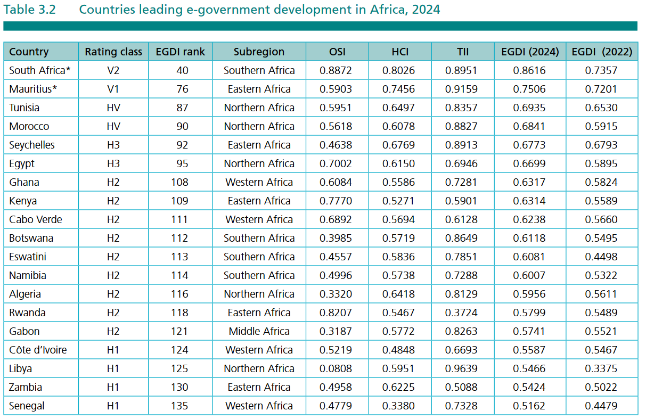
These five nations stand out due to their e-government development index (EGDI) scores, which exceed the African average of 0.4247 (on a scale of 1.0000). Their strengths lie in telecommunications infrastructure, human capital development, and online services, approaching the global average of 0.6382.
As regional leaders in e-governance, these countries set an example for others across Africa. Their advancements highlight the importance of investing in digital infrastructure, human capital, and enhancing online services. If this momentum spreads across the continent, it could significantly accelerate Africa's digital transformation, foster economic growth, and support sustainable development.
Samira Njoya
His goal is to help parents better support their children in their studies. He also leads two startups specializing in educational technologies.
Nick Miller (photo), a South African mechatronics engineer and entrepreneur, is the founder and CEO of Teach Me 2, a tech startup specializing in youth learning.
Founded in 2006, Teach Me 2 is a South African tutoring startup that simplifies the process of finding and managing tutors, helping parents avoid the hassle of searching for teachers for their children. The platform automatically schedules sessions, offering the flexibility for students to receive tutoring at home or online. It provides tutors in a wide range of subjects, including accounting, chemistry, economics, mathematics, physics, statistics, French, history, and life coaching. Since its launch, more than 35,000 parents have trusted the company.
Miller is also the founder and CEO of Coachbit, a startup launched in 2019 that offers a scientifically-based life and learning coaching program with personalized content, specifically designed for preteens and teenagers.
Before these ventures, Miller co-founded Clickego in 2008, serving as CTO until 2012. Clickego specializes in online ad management. In 2011, he co-founded Rental Connect, a software engineering firm, and in 2014, he created Storie, a startup he led as CEO until 2016, which offered a mobile app for easily creating and sharing videos.
Miller holds a bachelor's degree in mechatronic engineering from the University of Cape Town, specializing in facial recognition, image processing, and signal processing, which he earned in 2007. From 2013 to 2016, he also worked as a content creator on YouTube.
Melchior Koba


